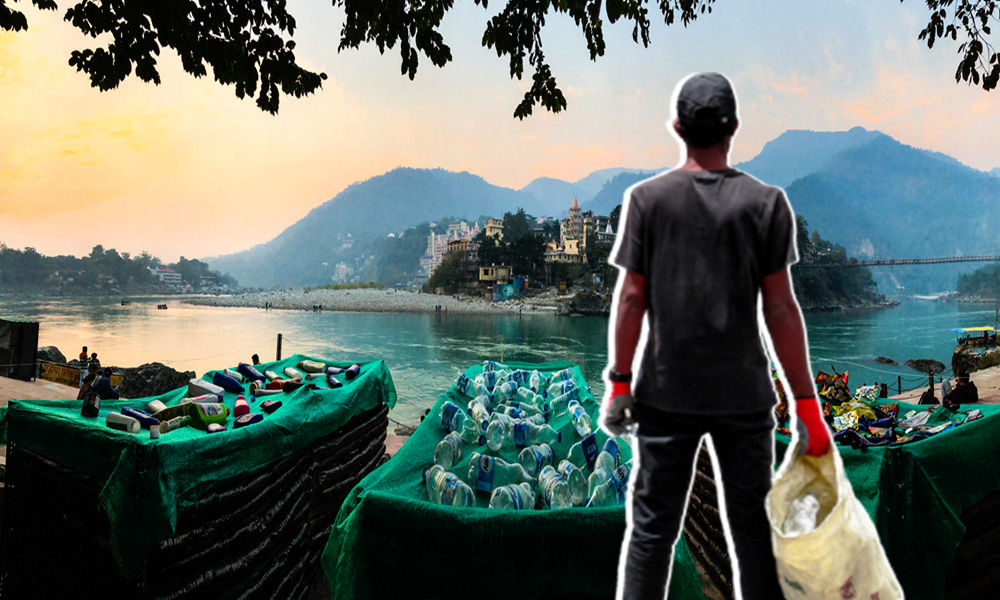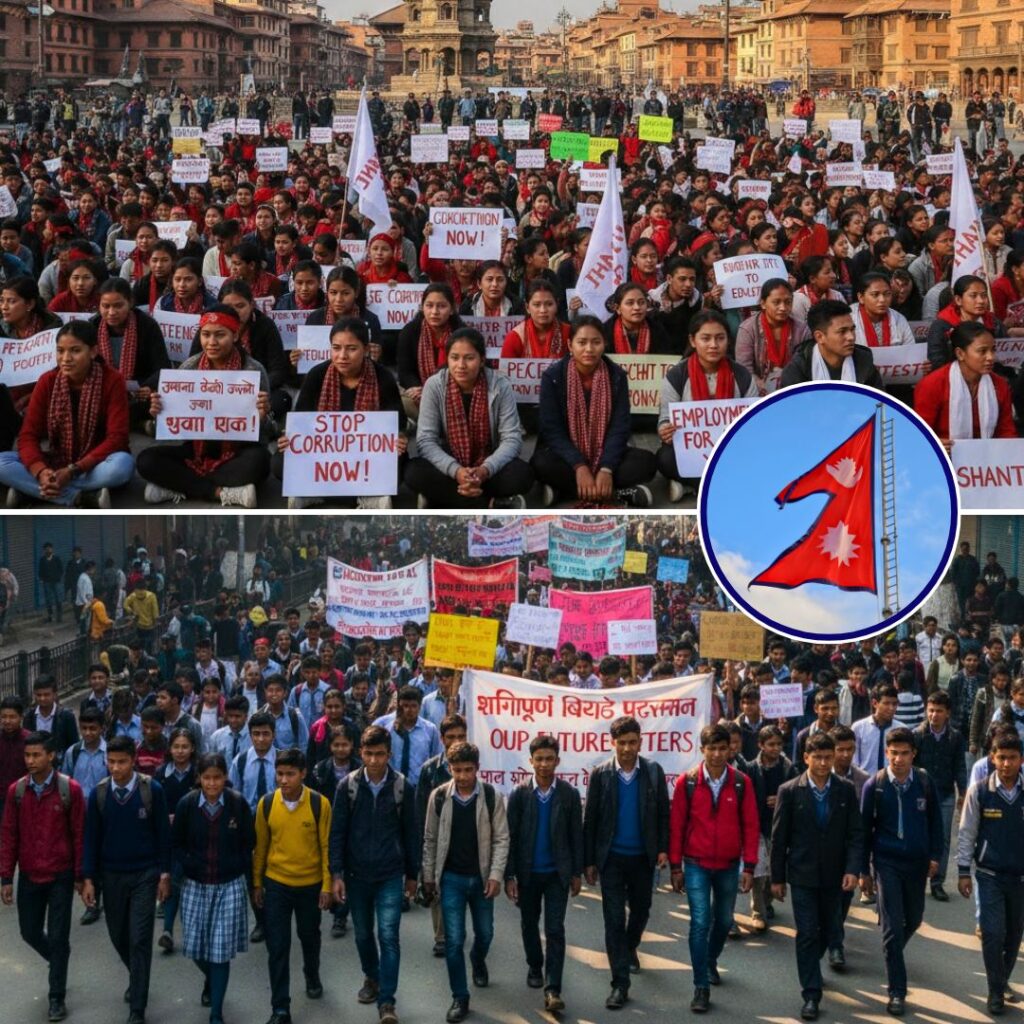In 2020, a visit to the holy city of Rishikesh would not have ended with temples and ashrams but with an unusual ‘plastic pyre’.
Strange, isn’t it?
Not for Aakash Ranison, a climate change campaigner who along with his team has set up a one-of-its-kind SUP (Single-Use Plastic) Death-Beds at Freedom Ganga Ghat, around 50 metres from Laxman Jhula.
The art installation was revealed on Sunday, December 20, coinciding with the United Nations’ International Human Solidarity Day. The activist shared that it was created to educate and warn the masses on the ill-effects of plastic pollution which is being reported to be the world’s deadliest killer.
‘A pyre never tells what snatched the life from the living, until now. In a stark climate change installation, we built a pyre with something that’s killing humanity – plastic. World’s first SUP Death-Bed made out of 26,000 tonne of single-use plastic, the average amount of waste generated by an Indian in a year, to show the living what can be the cause of their life’s end, and not just theirs but also generations to come,’ Aakash said.
Speaking about the idea, he said that a mirror has also been placed in front of the installation to make people mindful of the decisions they make every day. A simple act of mindlessly throwing away a plastic bottle holds the power to kill humanity and the coexisting biodiversity.
‘The installation very poignantly makes an invisible killer visible, a war cry to wake people up to see how ignorantly they could be killing themselves and their progenies,’ he added.
Three Death-Beds have been built using over 3000 single-use plastic bottles, plastic wrappers and containers made out of plastic collected from cleanup campaigns around the Ganga river.
It has been created over a period of four months along with members from Blue Jay Hostels, Municipality of Laxman Jhula, Clean Himalaya NGO, and aid from the locals.
‘We’ve chosen to fight against the single-use plastic to spark the thought of sustainability,’ said the young activist.
In 2017, over 6.78 lakh people visited Rishikesh which included religious tourists, leisure as well as adventure-sports enthusiasts. While in 2018, 6.62 lakh tourists visited the city of which 65.6 lakhs were Indian and 6044 Foreigners.
On 27 October 2018, Gati Foundation conducted Uttarakhand’s first-ever Twin City Brand Audit in Rishikesh and Haridwar. The audit report revealed that more than 50 per cent of the litter-strewn across the hillside at major tourist spots was primarily single-use plastic waste.
Project #Sustainably
The art fixture has been installed under project ‘Sustainably’ with which Aakash kick-started his climate change activism. He stated that his team is dedicated to working for the environment on the lines Sustainable Development Goal (SDG) 13 by the United Nation which pertains to climate change.
‘We aim to inform people about Global Rising Temperatures and bring sustainable practices into our daily lives,’ he said.
Speaking about the project, Aakash said the elimination of single-use plastic remains the focal point of the project. His team of eight volunteers and members of Clean Himalaya NGO have visited over 180 houses and as many as 200 hotels within a span of 30 days in the month of November, this year, to create awareness amongst people on the rising plastic menace.
The team undertook a survey and collected data in the areas of Rishikesh, Tapovan and Laxman Jhula to find the loopholes and as a solution, individually educated people about dry and wet waste disposal and on ways to avoid single-use plastic in one’s everyday life.
India’s Plastic Waste Crisis
A Central Pollution Control Board (CPCB) report (2018-19) has stated that the total annual plastic waste generation in India is at a humongous 3.3 million metric tonnes per year.
The country is struggling to dispose of its growing quantities of plastic waste right from plastic bottles, toothbrushes to debit cards. While the country generates close to 26,000 tonnes of plastic a day, according to a CPCB estimate from 2012, a little over 10,000 tonnes a day of plastic waste remains uncollected.
Unsegregated, uncollected plastic waste then ends up in the natural ecosystem, choking the seas and oceans or piling up on our lands. An estimate has pointed out that by 2050, the amount of plastic in seas and oceans across the world will weigh more than the fishes.
There was a time when we used to say life in a plastic it’s fantastic but today we have realised at a great cost that life in a plastic isn’t so fantastic.#plasticpollution pic.twitter.com/CMI8bduQ9x
— Riddhi Chudasama (@riddhi6699c) December 31, 2020
‘Marine plastic litter pollution is already affecting more than 800 marine species through ingestion, entanglement and habitat change,’ according to the UN Environment’s coral reef unit.
It is important to note that mistaking plastic for food and entanglement have been highlighted to pose threats to the marine species.
Marine mammals often get caught in…












